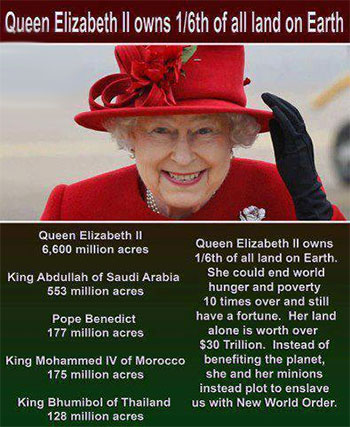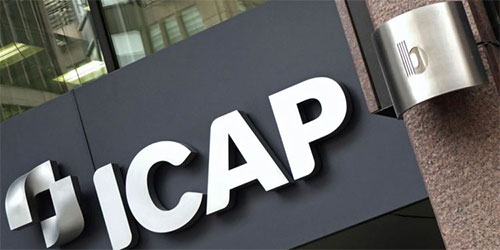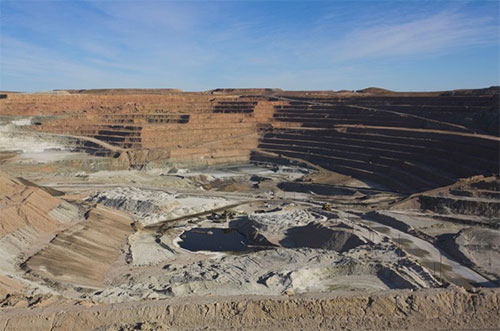Exposed: All the Queen’s Agents and Corporations that Control the World (4)
Taken from aim4truth.org
Read the third part of the article

British American Tobacco
British American Tobacco plc (BAT) is a British multinational tobacco company headquartered in London. It is the largest publicly traded tobacco company in the world. BAT has a primary listing on the London Stock Exchange.
BAT has a market-leading position in over 50 countries and operations in around 180 countries. Its four largest-selling brands are its native brand Dunhill and US brands Lucky Strike, Kent and Pall Mall, others the company markets include Benson & Hedges and Rothmans.
The company was formed in 1902, when the United Kingdom’s Imperial Tobacco Company and the United States’ American Tobacco Company agreed to form a joint venture, the British-American Tobacco Company Ltd. In 1911, the American Tobacco Company sold its share of the company.
Imperial Tobacco gradually reduced its shareholding, but it was not until 1980 that it divested its remaining interests in the company.
In July 2004 the U.S. business of British American Tobacco (Brown & Williamson) was combined with that of R. J. Reynolds Tobacco Company (R. J. Reynolds), under the R. J. Reynolds name.
R. J. Reynolds and Brown & Williamson were the second and third-ranking U.S. tobacco companies prior to the combination. When they combined, R. J. Reynolds became a subsidiary of Reynolds American, with BAT holding a 42% share.
In 2017, BAT bought the remaining 57.8 percent of U.S. cigarette maker Reynolds American in a $49.4 billion takeover that would create the world’s biggest listed tobacco company with brands including Newport, Lucky Strike and Pall Mall.
Over six million people worldwide die to tobacco death each year. The British don’t seem to mind that this industry kills more people per year than all the wars combined. There have been no class action suit against BAT in the UK.
ICAP – the World’s Largest Interdealer Broker
ICAP was the world’s largest interdealer broker for over-the-counter (OTC) trading.
In 2016, ICAP sold its global broker business to the British brokerage firm Tullett Prebon, which retained the “ICAP” brand, and ICAP rebranded the remaining, non-brokerage part of the business as NEX Group.
ICAP had daily transaction volume of more than $2.3 trillion at 50 locations in 32 countries, and offered both voice-driven and electronic brokerage systems plus post-trade services.
It provided wholesale brokerage on a range of interest rates, credit derivatives, commodities, foreign exchange, emerging markets, equities and equity derivatives.
More than 40 percent of its trading occurred on its two electronic trading platforms, BrokerTec and EBS, which merged to become EBS BrokerTec.
ICAP offers a range of OTC (over-the-counter) financial products and services in energy, foreign exchange, interest rates, credit and equity markets and indices.
For each of these asset classes, ICAP’s electronic capability gives customers the choice to enter prices and execute trades electronically, directly via one of ICAP’s electronic trading systems, or to engage with brokers to identify and help negotiate trades.
According to its 2013 Annual Report. Its electronic broking volume for 2013 reached $728.3 billion.
ICAP Becomes TP ICAP
TP ICAP plc is a global firm of professional intermediaries that operates in the world’s financial, energy and commodities markets. It is listed on the London Stock Exchange and is a constituent of the FTSE 250 Index.
In November 2015, the company agreed to terms with ICAP (now known as NEX Group) to acquire their global hybrid voice broking and information business. Using the name of the acquired business the company changed its name from Tullett Prebon plc to TP ICAP plc on 30 December 2016.
ICAP Crimes

On September 25, 2013, ICAP was fined a total of $87 million, including a $65 million settlement with the Commodity Futures Trading Commission (CFTC) and a $22 million settlement with Britain’s Financial Conduct Authority as part of an investigation into the manipulation of the LIBOR benchmark interest rate.
The ICAP fine was in addition to settlements paid by British lenders Barclays and the Royal Bank of Scotland, as well as UBS, of Switzerland, of a combined $2.5 billion related to the LIBOR scandal. ICAP was the first interdealer broker fined for rigging the Libor.
In June 2014 ICAP received an antitrust complaint from the EU’s antitrust arm alleging it facilitated a cartel to manipulate yen Libor.
The complaint alleged that “ICAP acted as a facilitator to breaches of EU competition law by certain banks in relation to yen Libor for isolated periods between 2007 and 2010.”
The UK and Silicon Valley
The UK is the leading European destination for Silicon Valley investors, with British tech companies raising more venture capital from Bay area VCs than any other European country.
According to the investment data released by London & Partners, over the last five years UK tech companies have received more venture capital investment from West Coast investors than France, Germany and Ireland combined.
Silicon Valley investors continue to pump large sums of money into UK tech companies despite Brexit, with 2017 already seeing a record $1.13 billion raised since the beginning of the year.
The findings have been released to mark the start of Silicon Valley Comes to the UK, a week-long series of events bringing together leading figures from the Bay area and UK tech scenes.
Further analysis of the investment data reveals that London tech companies received the majority of venture capital investment from the Bay area, accounting for over 90% ($1.04bn) of the total amount raised by UK tech companies this year.
Over the last five years, London tech firms have also raised considerably more capital ($2.5bn) than their European counterparts.
London’s thriving VC market has been boosted by the number of unicorn companies based in the capital, with separate research from investment firm GP Bullhound revealing that London is home to more unicorns than any other European city.
Fresh analysis of its 2017 Titans of Tech report found that London accounts for almost one third of all unicorns in Europe. With 17 out of the 53 unicorns founded in London.
Rio Tinto and Resource Fleecing
Rio Tinto Energy America (RTEA) was a wholly owned American subsidiary of the England and Australia-based mining giant, the Rio Tinto Group, headquartered in Gillette, Wyoming, United States.
The company, previously known as Kennecott Energy after another of Rio Tinto’s American subsidiaries, was formed in 1993 when Rio Tinto purchased NERCO and placed that company’s Spring Creek coal mine and Antelope coal mine under the RTEA umbrella.
Subsequent acquisitions included the Cordero Mining Company, the Colowyo Coal Company, and the Jacobs Ranch coal mine. RTEA operated four mines in Wyoming and Montana, supplying fuel for the generation of approximately 6% of the United States’ electricity consumption. The RTEA mines were spun off to Cloud Peak Energy in 2010.
Boron

The heart of Rio Tinto Borates’ business is the open-pit mine in Boron, California, one of two world-class borate deposits on the planet. Company founders began mining borates in 1872. What began as an underground mine was transformed into an open pit mine in 1957.
Resolution
The Resolution Copper project is a proposed copper mine that can supply the world with the copper it needs to support ongoing technological and environmental innovation.
The project will generate sustainable benefits for Arizona, creating several thousand direct and indirect jobs and is expected to have an economic value of several billion dollars over the estimated life of the mine.
Rio Tinto Kennecott
Rio Tinto Kennecott is a fully integrated mining operation located just outside Salt Lake City, Utah, US. Kennecott is a wholly owned subsidiary of Rio Tinto.
For more than 110 years, Kennecott has been mining and processing minerals from the rich orebody of the Bingham Canyon Mine. In 1989, Rio Tinto acquired the Bingham Canyon Mine and other facilities in the Salt Lake Valley.
Rio Tinto Crimes
The top U.S. securities regulator rejected arguments by Rio Tinto Plc and two former top executives that its civil lawsuit claiming they concealed the plunging value of coal assets owned by the big Anglo-Australian mining company should be dismissed.
In letters filed with the U.S. District Court in Manhattan, the Securities and Exchange Commission said its complaint adequately alleged that fraud occurred, and that Rio Tinto, former Chief Executive Thomas Albanese and former Chief Financial Officer Guy Elliott intended to deceive investors.
The SEC accused Rio Tinto of ignoring the need to write down most of the value of Mozambique coal assets it had bought for $3.7 billion in April 2011, while it was raising roughly $5.5 billion from U.S. investors.
Rio Tinto wrote off most of the value in January 2013, and sold the assets in late 2014 for just $50 million. It said that had Rio Tinto properly written down the assets, its net earnings for the first half of 2012 would have been reduced by more than 50 percent.
Read the fifth part of the article
yogaesoteric
January 15, 2020
